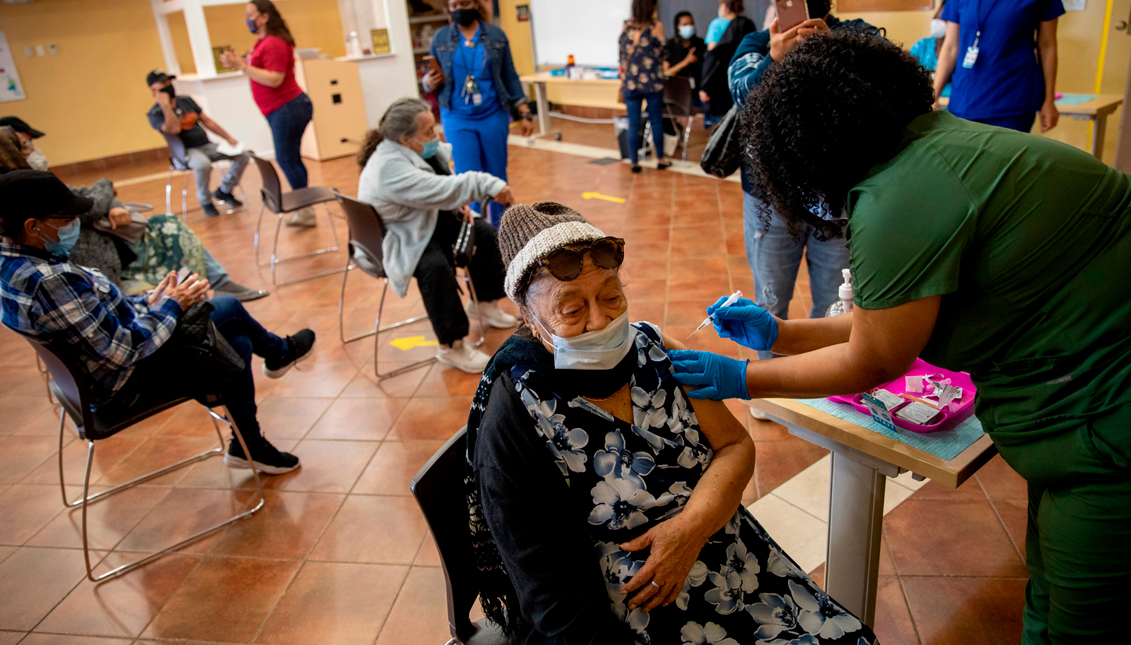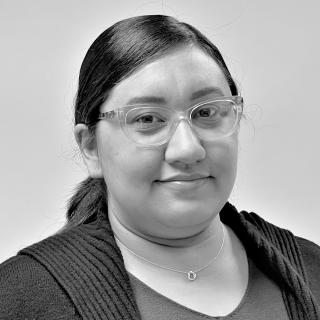
Promotoras from CASA de Maryland fight to decrease vaccination gap among elderly Latinos
Latinos face some of the most widespread misinformation campaigns about the vaccine.
There is more than one barrier when it comes to Latinos having access to the COVID-19 vaccine, and language is arguably the most prevalent.
Since not all Latinos are able to speak English, making an appointment or researching the vaccine in the U.S. is difficult.
According to data collected by Salud Ameríca, of the 43 states that report vaccine distribution by race, a majority had lower Latino vaccination rates compared to the Latino share of the state’s population.
To make matters worse, Latinos have been major targets for misinformation campaigns about the vaccine.
To fight against the tide and get people vaccinated, the nonprofit CASA de Maryland is scouting grocery stores, strip malls, and farmer’s markets to engage with older Latinos and educate them about the COVID-19 vaccine.
They do it with an army of ‘promotoras.’
Promotoras are volunteers, but more than that, they are loyal community organizers walking the streets of suburban Maryland and other parts of the city answering any COVID-19-related questions in Spanish.
Their goal is to get as many Latinos informed about the vaccine as possible.
One promotora, Dolores Fontalvo who has been with CASA for 18 years, spoke to NPR about the misinformation spreading in many Latino communities. Every chance she gets, she’s dispeling falsehoods and separating fact from fiction.
"People hear negative rumors like, oh, the vaccine contains a microchip or vaccines kill people," Fontalvo said in Spanish.
However, she and many other promotoras also listen to the many stories told by elderly Latinos still reeling from the COVID-19 pandemic. Many lost family members, friends, and jobs.
RELATED CONTENT
For many Latinos, the fear of not being able to support their loved ones and leave them stranded without financial help still lingers.
On top of that, many Latinos lack access to the vaccine, or cannot afford to take time off from work.
Lack of vaccine access is also just the tip of the iceberg.
"Our community has suffered not only from COVID, but also all the social consequences that have come with COVID, such as housing insecurities, food insecurities, financial insecurities due to job losses or hours cut," LaRue said to NPR.
In the early stages of the vaccine rollout, CASA promotoras began volunteering to receive the vaccine to create trust between the Latino community and the government.
"So we know for a fact that this vaccine works on us, and to try to bridge some of those trust issues that our community may have,” said LaRue.
Promotoras from CASA have been relentless in spreading positive information among its Latino peers and will continue to do so until every non-English speaking Latino is informed.
Besides Maryland, there are other volunteer programs similar to CASA used to educate Latinos in Southern California.
The support from CASA’s promotoras has lent a helping hand to older Latino generations. As they still grieve and deal with pent up frustration, they are met with friendly volunteers, eager to listen to their stories.











LEAVE A COMMENT:
Join the discussion! Leave a comment.